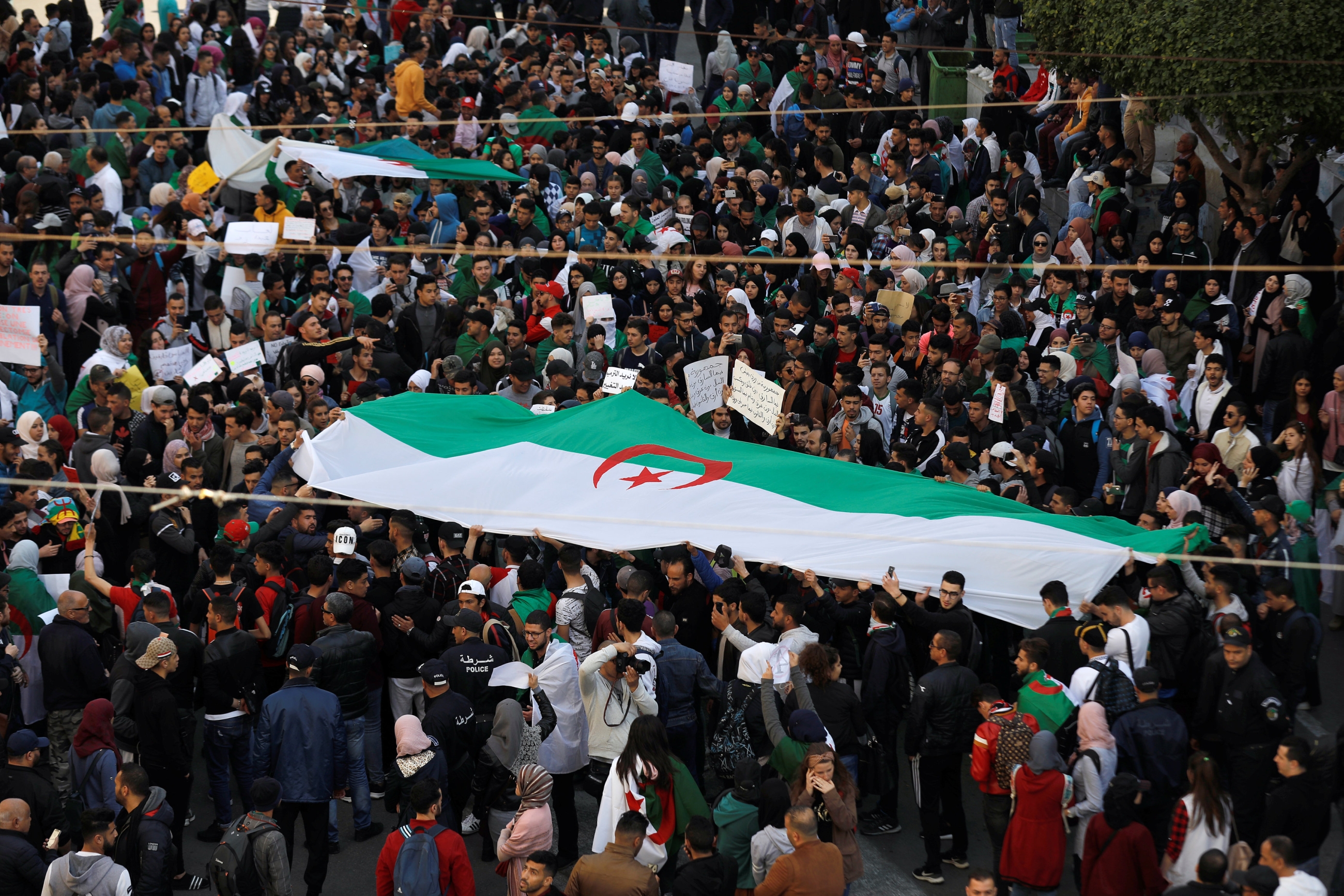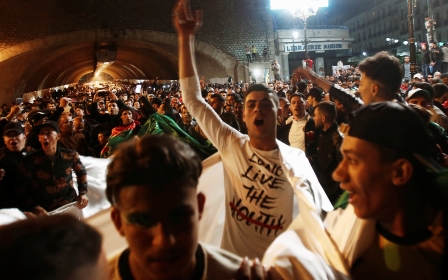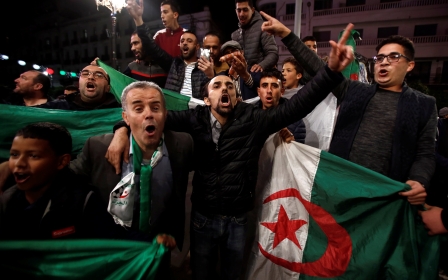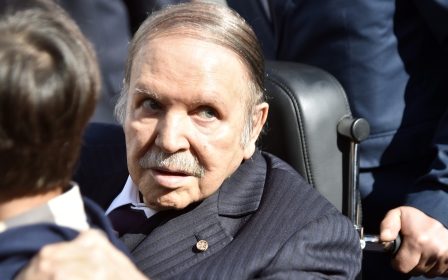Algeria: Bouteflika 'asks for forgiveness' a day after stepping down as president

Algeria's now-former president, Abdelaziz Bouteflika, has asked for forgiveness from Algerians, a day after the embattled leader officially announced he would be stepping down, ending two decades in power.
In a letter published by the state-run Algeria Press Service (APS) in Bouteflika's name, the 82-year-old addressed Algerians, saying he couldn't end his presidential term "without sending you a final message".
"I can't finish my presidential term without sending you a final message ... asking forgiveness from those, among the children of my homeland, for whom I may have failed in my duty, however unintentionally, despite my deep commitment to serve all Algerians," the letter reads.
"To err being human, I am asking for forgiveness for any failing, in speech or gesture, towards you," he said.
Bouteflika had faced an unprecedented wave of popular protests since 22 February, with hundreds of thousands of Algerians taking to the streets across the country for over five weeks to oppose his bid for a fifth term as president.
The elder statesman initially tried to appease the demonstrators - first saying he wouldn't seek a fifth term, then delaying the vote outright, and then vowing to leave before the end of his term on 28 April.
But the continued rallies, combined with cracks in Bouteflika's wide-reaching political support network, finally forced him out on Tuesday.
While the president's plan to run for a fifth term is what initially set off the mass protests, Algerians have continued to push for an overhaul of the country's entire political system.
Many have said Bouteflika's resignation does not change the underlying forces that run the state, and they are calling for widespread reforms to deal with mass unemployment, socioeconomic inequalities and corruption.
In the letter on Wednesday, Bouteflika said that "Algeria will soon have a new president" and he said he prayed to God "to guide his steps to realise the aspirations and expectations" of the country's citizens.
"In fact, despite the tensions since 22 February, I never stopped having confidence - thanks to God - in the ongoing national process and that people would arrive to push it towards progress and prosperity," he said.
"It's my wish [that] particular attention be paid to the youth and women" to allow them to enter into politics, he added.
"I have tremendous faith in their capacity to contribute and respond to the challenges that face our nation - and build its future."
Uncharted territory
It remains unclear how the post-Bouteflika era in Algeria will take shape, however.
Before his resignation, Bouteflika called for national dialogue to chart the country's political transition.
Former Algerian president Liamine Zeroual said earlier this week that he turned down an offer to lead a transitional government upon Bouteflika's resignation.
In the immediate aftermath of his announcement, hundreds of Algerians took to the streets to celebrate Bouteflika's resignation.
"We must continue the popular movement in order to meet all the demands of the Algerian people," Algerian protester Selim Sarar, 29, told AFP news agency on Wednesday.
"We want the transitional period, during which the government is the people, not the current one, because if the current system forms it, it will be like the movement never happened.
"The movement must go on."
Middle East Eye delivers independent and unrivalled coverage and analysis of the Middle East, North Africa and beyond. To learn more about republishing this content and the associated fees, please fill out this form. More about MEE can be found here.





